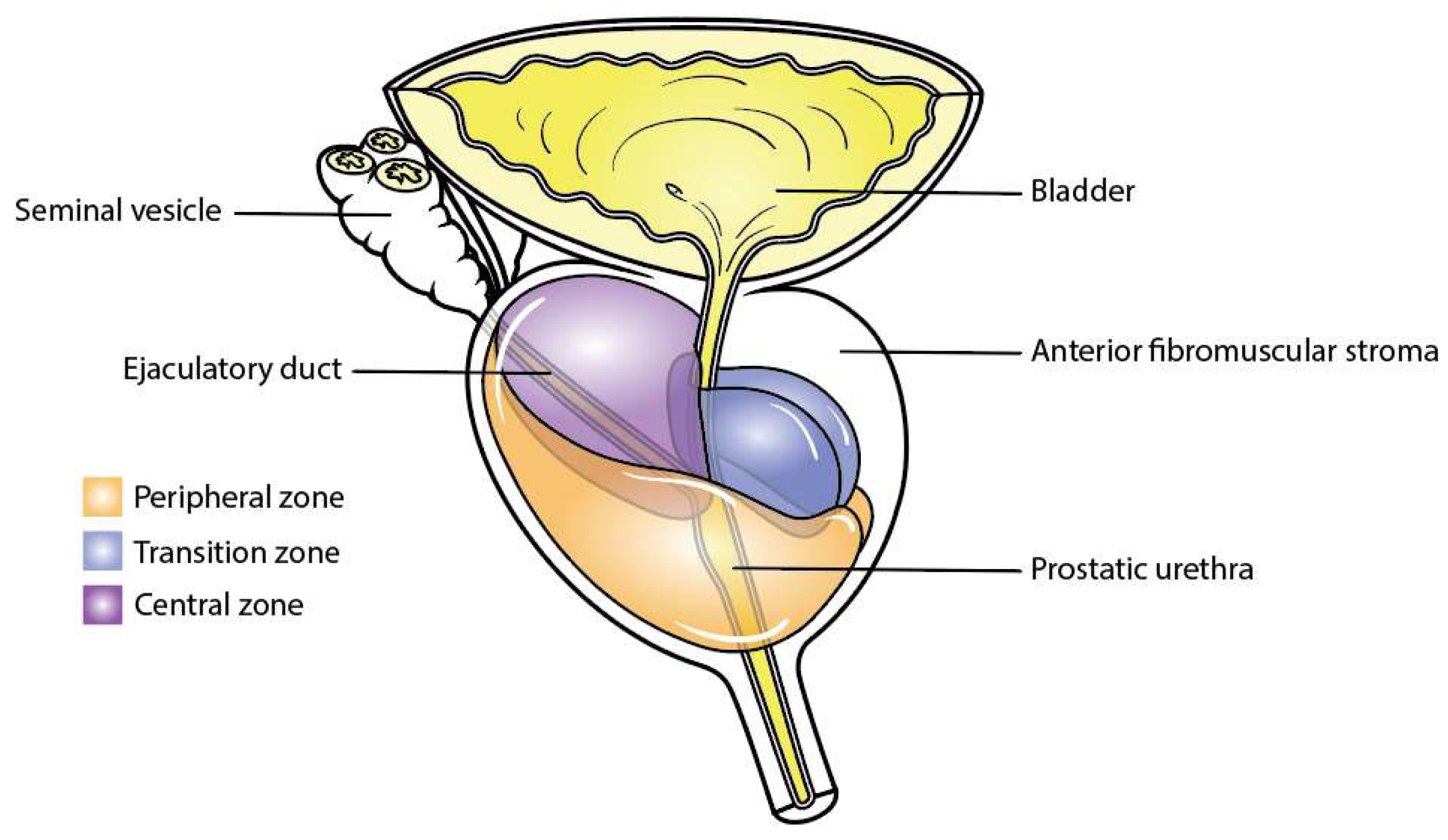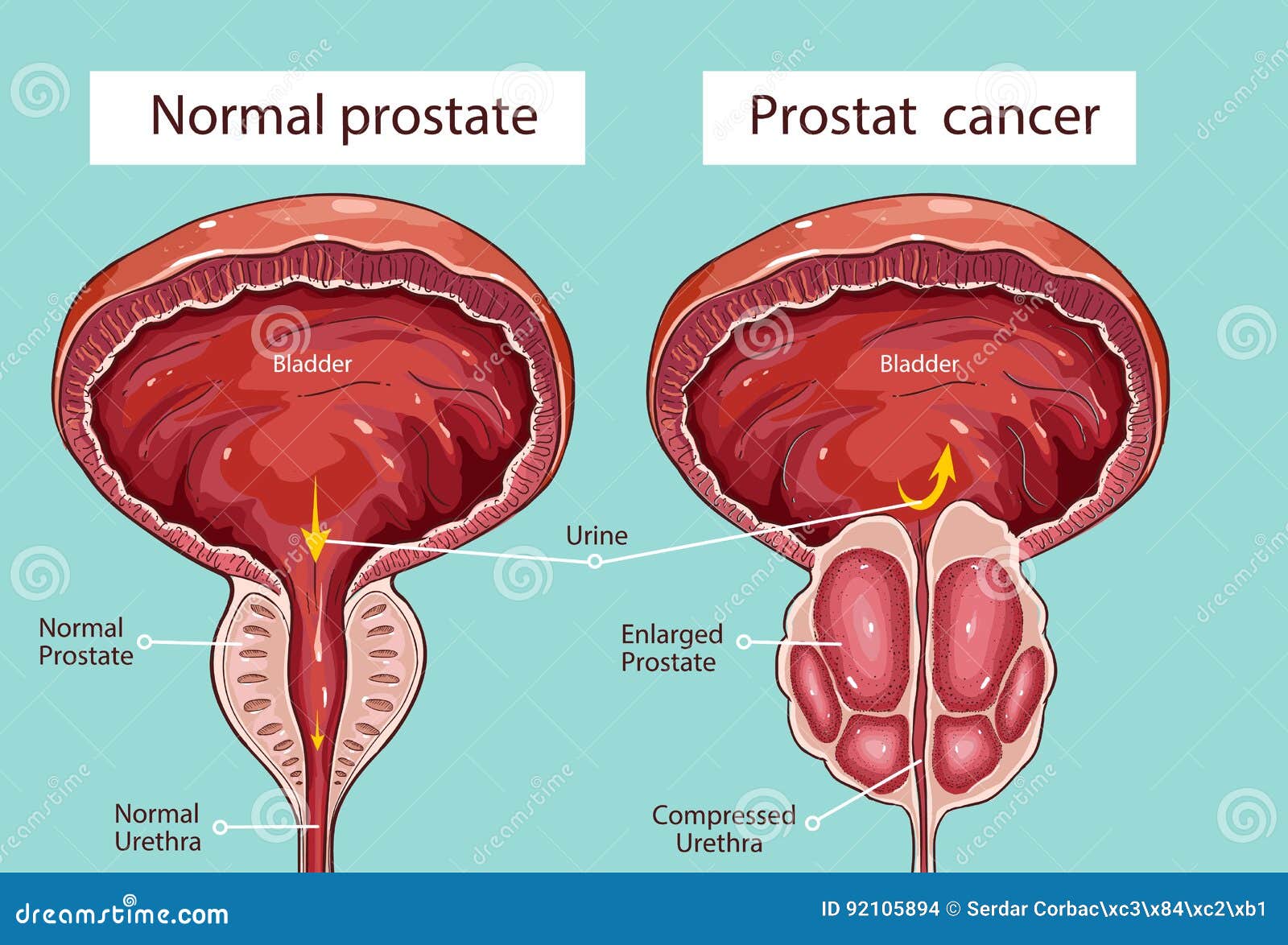When you or someone you care about hears the words "prostate cancer," it's natural to feel a rush of different feelings. One of the first things that often comes to mind, quite naturally, is what the future holds. That's where the idea of "prostate cancer prognosis" becomes so important, you know? It's about getting a clearer picture of what to expect, and that can bring a measure of calm in what might feel like an uncertain time. People really want to grasp what their personal situation might look like, and that's perfectly understandable, as a matter of fact.
The outlook, or prognosis, for prostate cancer, is actually, among the best you'll find for any type of cancer. This is, in a way, a very encouraging piece of information for many men who receive this diagnosis. It’s important to keep in mind, however, that while the overall picture is good, survival rates and the chance of the cancer coming back are based on averages. These numbers, you see, won't tell your exact story, because everyone's situation is unique, and that's something to remember.
So, understanding what factors play a role in that outlook can really help you feel more informed. It's about looking beyond just the general statistics and seeing how different details of your health and the cancer itself come together to shape your individual path. We'll explore what contributes to that outlook, helping you, perhaps, feel a bit more in control of the information, which is, honestly, a very good thing to have.
Table of Contents
- Understanding the Prostate: What It Is and What It Does
- Prostate Cancer Outlook: What to Expect
- Factors Shaping Your Prognosis
- Survival Rates Explained: What Do They Mean for You?
- Advances in Treatment and Detection
- Common Questions About Prostate Cancer Prognosis
- Taking the Next Steps
Understanding the Prostate: What It Is and What It Does
Before we talk about the outlook for prostate cancer, it’s really helpful to know a little bit about the prostate itself. Many men, you know, don't actually realize what this small gland is or what it does for the body. It's a key component, basically, of the male reproductive system, and it plays a rather important role, as a matter of fact.
The prostate is a gland, kind of, located right below your bladder and in front of your rectum. It's about the size, more or less, of a walnut, though it does grow larger with age. Its main job is to add fluid to your semen, helping to form that fluid in semen, which is pretty vital for reproduction. So, it's not just some random organ; it actually has a very specific and important function, you know.
As men get older, this gland tends to grow larger, which, naturally, increases the chance of problems. Prostate cancer is one such issue, but there are other common conditions that can affect it too. These include BPH, which is an enlarged prostate that isn't cancer, and prostatitis, which is an inflammation of the prostate. So, understanding its normal function helps to recognize when something might not be quite right, which is, honestly, pretty important for your health.
Prostate Cancer Outlook: What to Expect
The overall outlook for prostate cancer is, as we've mentioned, really quite positive, actually, especially when compared to many other types of cancer. This is, in a way, something that provides a lot of comfort to those facing this diagnosis. Survival for prostate cancer is generally good, particularly if it's found early, which is, you know, a very strong point to remember.
When prostate cancer is caught early, the prognosis, or the likely outcome, is typically very good. This means that the chances of a successful outcome are much higher when the cancer is detected before it has had a chance to spread widely. It’s almost like catching a small problem before it becomes a much bigger one, which is, obviously, ideal.
Even with advanced stages, like stage IV prostate cancer, there's been some really encouraging news. Improvements in treatments have, as a matter of fact, increased survival rates for these more advanced cases. This shows that medical progress is continually offering better options, even for situations that were once considered much more challenging, which is, honestly, a very hopeful development.
Factors Shaping Your Prognosis
While the general outlook is positive, several individual factors truly influence a man's specific prostate cancer prognosis. It’s not just one thing, but rather a combination of elements that come together to give a more complete picture. Understanding these factors can help you, perhaps, make more informed decisions and have better conversations with your medical team, which is, you know, really valuable.
The Stage of Cancer at Diagnosis
One of the most significant factors influencing the outlook is how far the cancer has spread when it's first discovered. Prostate cancer with a lower stage at diagnosis generally has a more favorable prognosis. This means that if the cancer is confined to the prostate gland itself, the chances of a good outcome are typically much higher, which is, honestly, a very good sign.
Cancer that hasn't spread outside of the prostate at the time of diagnosis has a better prognosis than cancer that has, you know, moved beyond its original location. Survival rates are grouped based on how far the cancer has spread, so a localized cancer will usually have a much different outlook than one that has, say, traveled to other parts of the body. This is, basically, why early detection is often highlighted as being so important.
Your Personal Health and Age
Your age and overall health play a very important role in predicting life expectancy and influencing the prostate cancer survival rate. A younger man in good health might tolerate treatments differently and have a different long-term outlook compared to an older man with other health concerns. It’s not just about the cancer itself, but also about the body’s ability to manage treatment and recovery, which is, you know, a big part of the equation.
For example, for men over 80, survival rates tend to drop to around 82.7%. This isn't necessarily just because of the prostate cancer, but often due to other health complications that can arise at that age. These other health issues can, basically, make treatments more challenging or impact overall well-being, so it's a very practical consideration, as a matter of fact.
Test Results and Cancer Characteristics
Specific test results provide crucial information about the nature of the cancer itself. Things like the PSA level, which is a blood test, and the grade group of the cancer, determined from a biopsy, offer important clues. These details help doctors understand how aggressive the cancer might be and how quickly it might grow, which is, obviously, very helpful for planning treatment.
The type of prostate cancer you have and how fast it is growing also influence survival. Some prostate cancers are very slow-growing and might never cause significant problems, while others are more aggressive. So, it's not just that you have cancer, but also the specific characteristics of that cancer that really shape the prognosis, which is, honestly, a very important distinction.
How Treatment Responds
Another factor that becomes clear over time is how well the cancer responds to the chosen treatments. Sometimes, a cancer might react very positively to initial therapy, leading to a better outlook. Other times, it might be more resistant, requiring different approaches. This responsiveness is, in a way, something that doctors monitor very closely, as it directly impacts the path forward.
The effectiveness of various treatment options, from robotic prostatectomy to newer research-based therapies, all contribute to the overall picture. Learning about detection, diagnostic approaches, and treatment options, including advances, can help you understand the journey. It's a very dynamic process, basically, where adjustments might be made based on how the cancer behaves, which is, you know, part of ongoing medical care.
Survival Rates Explained: What Do They Mean for You?
When you hear about prostate cancer survival rates, it’s important to understand what these numbers actually represent. They are, essentially, statistics that tell us what percentage of people with a certain condition are still alive after a specific period, usually five or ten years, after their diagnosis. These rates are, you know, grouped based on how far the cancer has spread, as we've discussed.
Survival rates are a way to predict life expectancy, but they are based on large groups of people, not just one individual. So, while they offer a general idea, they don't, basically, guarantee any specific outcome for any one person. Your age and overall health, as well as the numerical stage the disease has developed, are all factored into these predictions, making them more useful for broad understanding than for precise individual forecasting, which is, honestly, a very important distinction to remember.
For example, you might find information about prostate cancer survival rates for patients diagnosed at different stages. This helps to show how the outlook can improve significantly with earlier detection. Learning about the factors that contribute to higher survival rates, like early diagnosis and effective treatment, can, in a way, empower you with knowledge about what tends to lead to better outcomes. It's about understanding the trends, you know, rather than getting a crystal ball prediction.
Advances in Treatment and Detection
The field of prostate cancer care is always moving forward, with new developments in detection, diagnosis, and treatment options. These advances are, basically, contributing to the generally positive prognosis we see today. Things like improved diagnostic approaches mean that doctors can get a clearer picture of the cancer earlier, which is, honestly, a very good thing.
Current research continues to explore new ways to fight prostate cancer, including advanced surgical techniques like robotic prostatectomy. These developments mean that even for challenging cases, there are often new avenues for treatment being explored. It's a very active area of medical study, and that ongoing effort is, in a way, part of why the outlook keeps improving for many men, as a matter of fact.
Understanding these advancements can give you a sense of the progress being made. It's not just about what we know now, but also about what's being discovered and refined. This constant evolution in care is, basically, a significant reason why the prognosis for prostate cancer remains strong, and often gets better, for so many individuals, which is, you know, truly encouraging.
Common Questions About Prostate Cancer Prognosis
Here are some common questions people often ask when thinking about prostate cancer and its outlook:
What is the life expectancy of someone with prostate cancer?
The life expectancy for someone with prostate cancer varies quite a bit, actually, depending on several factors. It's very much tied to how far the cancer has spread when it's found, your age, and your overall health. When prostate cancer is caught early and is still contained within the prostate, the outlook for a long life is generally very good. Even if it's spread, modern treatments have, you know, significantly improved survival rates, as a matter of fact.
Can prostate cancer be cured if caught early?
When prostate cancer is found early, particularly when it hasn't spread outside the prostate gland, it can often be cured. The prognosis in these early stages is, basically, very favorable. Treatment options, like surgery or radiation, are often very effective at eliminating the cancer. So, yes, catching it early truly makes a big difference in the potential for a complete recovery, which is, honestly, very reassuring.
What is the survival rate for prostate cancer by age?
Survival rates for prostate cancer are indeed influenced by age, among other things. While the overall survival is high, particularly for younger men, it can, you know, be slightly lower for older men, especially those over 80. This is often because older men might have other health conditions that complicate treatment or impact their general health, not solely due to the cancer itself. Your age and overall health are, basically, important parts of the survival rate prediction, as a matter of fact.
Taking the Next Steps
Learning about prostate cancer prognosis can feel like a lot of information to take in, but it's a very important step towards understanding your health. Remember, the general outlook for prostate cancer is quite positive, especially with early detection. Your personal journey, however, is unique, shaped by many individual factors.
If you have concerns about your prostate health or a recent diagnosis, talking with your doctor is, basically, the best way to get answers tailored to your situation. They can explain your specific test results, discuss treatment options, and help you understand what your prognosis means for you. For more general information on cancer, you might find resources from the American Cancer Society helpful. Also, you can learn more about prostate health and common conditions on our site, and find more details on prostate cancer detection and treatment options here.



Detail Author:
- Name : Briana Osinski
- Username : lonny.lynch
- Email : wilmer08@swaniawski.biz
- Birthdate : 1995-12-05
- Address : 177 Barton Radial Suite 519 Hobartton, PA 08192-7048
- Phone : 1-478-884-3871
- Company : Zboncak LLC
- Job : Food Service Manager
- Bio : Sapiente illo maxime et reprehenderit nostrum sed. Possimus recusandae ut autem qui dolorem. Possimus quis autem officiis voluptatem et distinctio natus.
Socials
twitter:
- url : https://twitter.com/medawalter
- username : medawalter
- bio : Non alias explicabo assumenda exercitationem velit aut. Enim aut quia qui provident enim tenetur. Reiciendis quaerat qui quia.
- followers : 691
- following : 354
instagram:
- url : https://instagram.com/walterm
- username : walterm
- bio : Sit consequatur rerum et. Nesciunt officiis quam dolorem quisquam molestiae dolor.
- followers : 4649
- following : 1409

